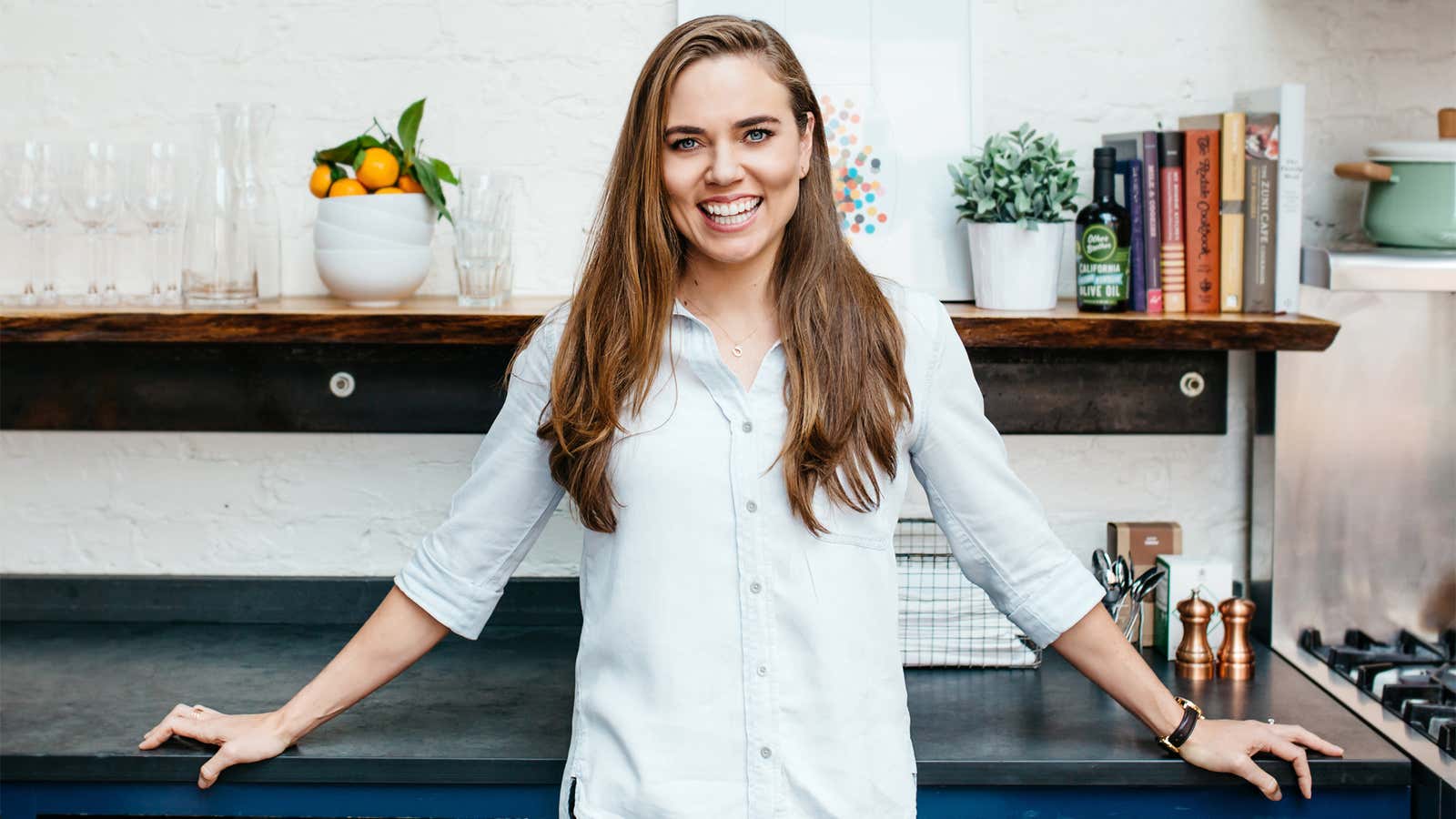She’s been described as a “kayak slicing past rowboats,” a “ballet performed amid polka dancers,” and a “symphonic instrument tuned one octave lower than all the others.” Her in-water performance has been compared to dolphins, cheetahs, gummy worms, screwdrivers, knives, javelins, bows, and the hockey player Gordie Howe.
The athlete who elicits such specific and wide-ranging metaphors is 12-time US Olympic medalist Natalie Coughlin.
Having won three golds, four silvers, and five bronzes across three summer games—Athens, 2004; Beijing, 2008; and London, 2012—she is tied for most-decorated female American athlete in Olympic history. She has broken six world records and 35 national records and, in a sport that trains star athletes to hone one or two strokes, her records encompass four: freestyle, butterfly, backstroke, and individual medley, which requires breaststroke. Her success, despite her having scoliosis, is due in part to her outlandish flexibility.
Coughlin was an unusually fast swimmer from an early age. By 13 she was pushing adult freestyle records, and by 16—with the Sydney Olympics a year away and her eyes set on a college scholarship—she’d set three national high-school records and was named as a possible Olympian in a number of strokes and distances. Then in March 1999, she pushed it too hard in a training session and woke up with throbbing shoulder pain, having sustained a seemingly career-ending injury.
Practicing in the “gimp lane,” as she called it, Coughlin grew resentful. “If college wasn’t around, and I wasn’t going to get a free education out of it, I would have quit,” she told the New Yorker. “I hated swimming. I hated the fact that I was so good, and hurt myself, and it wasn’t even because I did something stupid—it was because I was trying to be the best I could. And it sucks when you think you’re past your peak when you’re only 17.”
Five years later, she won her first gold medal at the Olympics.
In an interview with Quartz, Coughlin explains why iteration is the key to long-term success, the sexism behind calling women “difficult,” and how she sustains her focus through underwater sprints and long-term injuries.
1. What’s your big idea that other people aren’t thinking about or wouldn’t agree with? Why is it so important?
I think you should always question why you are doing something and if there is a better way to do it. So often we get set in our beliefs, thinking the way that something has always been done is the best way.
2. What behavior or personality trait do you most attribute to your success?
I believe my best attribute is my ability to be highly focused for long periods of time. Swimming can be difficult mentally since you’re underwater and in your own thoughts for hours and hours. Being present and focusing on the task at hand—rather than what happened earlier that day or what will happen in the future—is something that is very tough to do.
3. If you could make one change to help women at work, what would it be?
Everyone, whether man or woman, needs to learn how to stand up for themselves and take charge of their situation. I would work to ensure that everyone’s voice is heard and that women aren’t made to feel like they are “being difficult” when speaking their mind.
4. At the start of your career, what do you wish you had known? What, if anything, do you wish you had not believed?
I wish that I could have learned to trust in the process earlier. Challenges, obstacles, and perceived failures can be your greatest assets if you choose to approach them with the proper attitude. Rather than dwell on the negative, you can approach any challenge with the mindset that every experience can be a learning opportunity.
5. When in your career did you feel most despondent, and what did you do to turn it around?
When I was in high school, I had a big injury that prevented me from training to the best of my ability, and ultimately prevented me from making my first Olympic team. I hated the sport and desperately wanted to quit, but I had a college scholarship waiting for me. That scholarship motivated me to continue my sport. When I arrived at college, I let go of my previous beliefs and opened myself up to new approaches to training. My body healed, and I was faster than ever. Twelve years later, I had earned 12 Olympic medals despite wanting to quit several years earlier.
6. A key part of success is building strong professional relationships. What practice do you use to cultivate them with your colleagues?
In sport, leading by example is always the best way to go. I feel like I’ve always carried myself in a professional way whether I’m experiencing tremendous success or going through a difficult time.
7. What’s the best advice you’ve ever received?
My college coach, Teri McKeever, always said to focus on the journey and not the destination. It’s important to enjoy the process, even when it’s tough, and not only focus on the end goal.
8. If there’s one thing men can do to improve women’s life at work, it would be…
Understand that gender inequality is something that has drastically improved over the years, but progress still needs to be made. Women still get paid 80 cents on a man’s dollar.
Bonus Questions:
I wish people would stop telling me… that I can’t take criticism.
Everyone should own… a proper eye mask for sleeping. They make such a difference.
This interview is part of How We’ll Win, a project exploring the fight for gender equality at work. Read more interviews with industry-leading women here.
